When Time is Not on Your Side - Understanding Time Blindness in ADHD
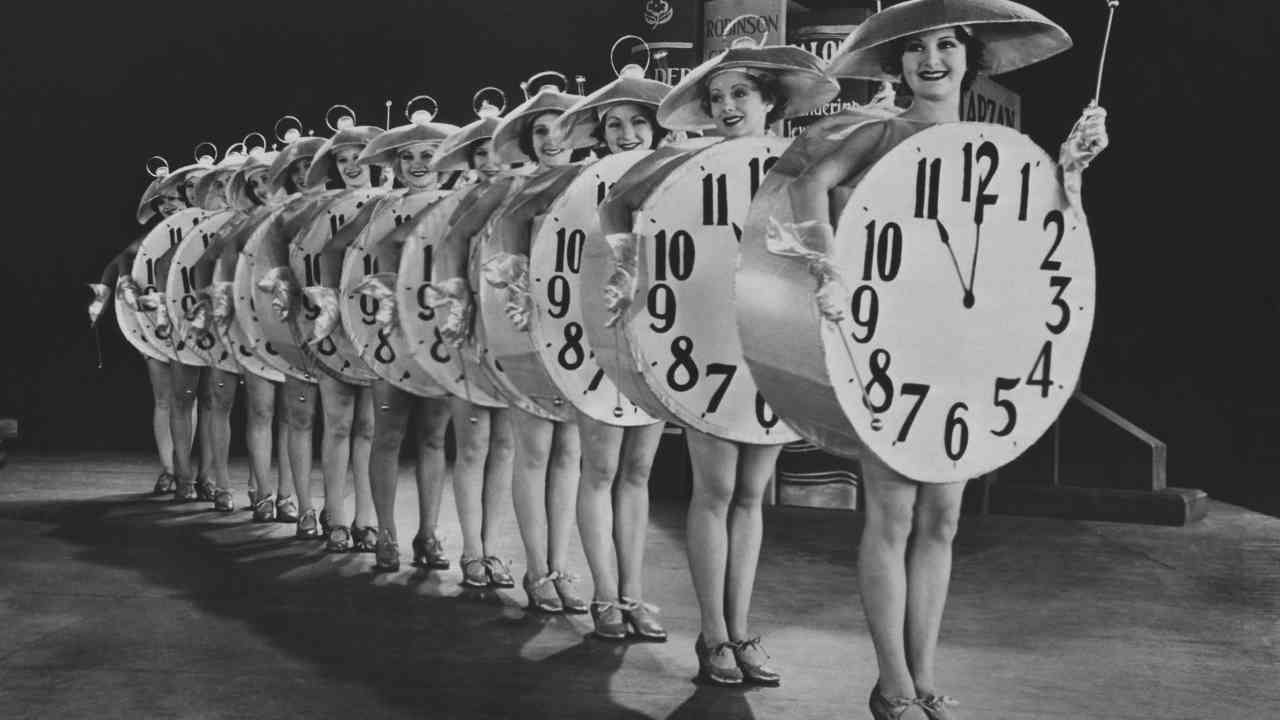
Did you know that there's an actual thing called "time blindness?"
It's pretty much exactly what it sounds like, although I wouldn't say it's blindness to time so much as, not seeing it so well. It's something that many people with ADHD experience.
It's not wanting to fold your laundry because you think it takes four hours when it only takes twenty minutes. True story.
Or, it's being late to work because you thought you could get ready in five minutes but really needed half an hour. Also a true story.
So today I want to talk about time blindness, what the research says about it, how it shows up in real life, and some ways to deal with it.
So, hi! This is Julie from Julie Saad Wellness. I'm a holistic wellness coach specializing in helping women with ADHD regain their focus, get fit, and have fun again.
Alright, so this whole time-blindness thing seems kind of vague. I mean no one knows exactly what time it is all the time or how long things take down to the second, right?
Right.
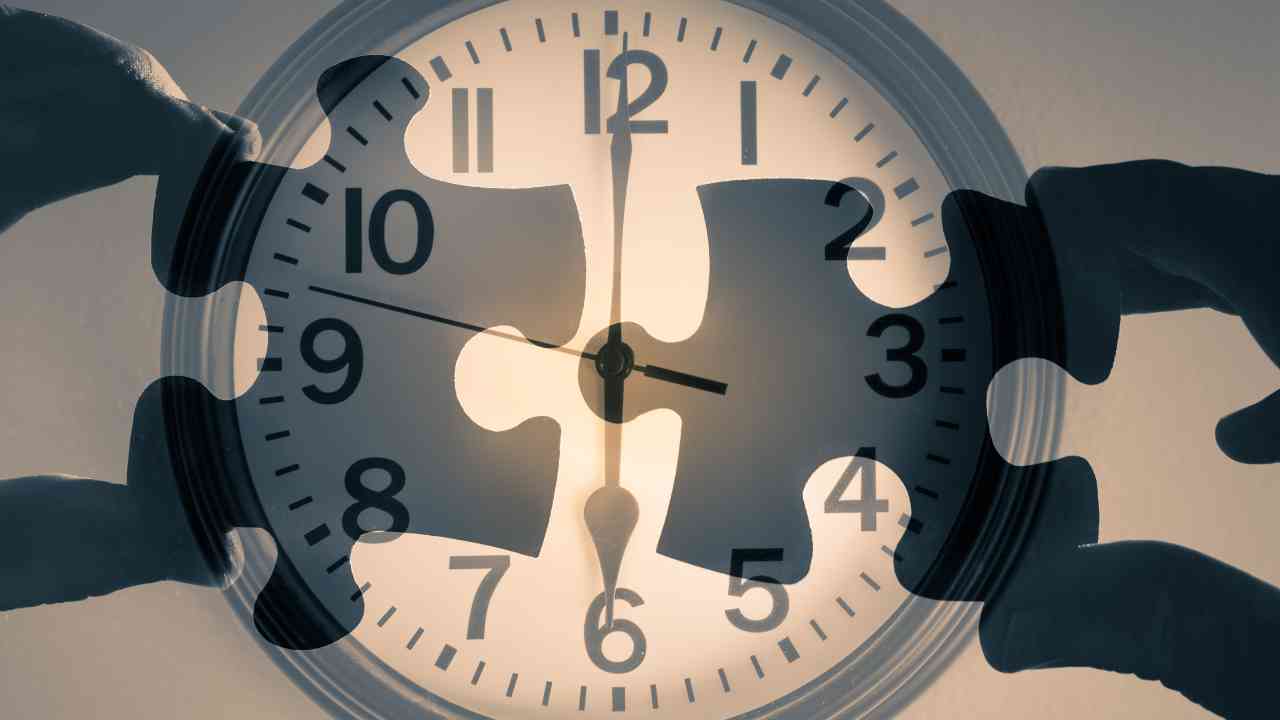
What the Research Says About Time Blindness and ADHD
Yet, according to studies, people with ADHD in particular can have a bit more difficultly correctly estimating how long something is going to take, or correctly estimating how long something took.
For example, a small study done on children in Germany asked the kids to estimate how much time had passed during specific activities. About half of the children in the study had ADHD and the other half did not.
The researchers exposed the babes to various stimuli and later asked them, "Hey, how much time did we show you that picture for?" or something to that effect. In general, the ADHD kids overestimated the duration of the stimuli. So they thought that everything took a lot longer than it really did in this particular study. (1)

Meanwhile, some other studies showed some pretty fascinating stuff. In fact, in one study about estimating time, the ADHD peeps did BETTER, yes, I said, "BETTER" than the neurotypicals, yeah! But it had to do with one specific aspect of the study. Allow me to explain.
In the study, there was a group of kids with ADHD and a control group. The children had to compare neutral images with other images that were neutral, positive, or negative. And they had to make estimations about time. The ADHD kids did a better job of differentiating between different lengths of time than the non-ADHD kids. Yay! Go us!
The researchers theorize that children (and by extension we would assume, adults) with ADHD are more sensitive to time when they're in situations where they must process both time and emotion, whereas in neurotypical kids, this division of attention causes them to be less accurate.
Let me say that again in case it sounded like gobbledygook. The ADHD kids in the study did a better job of estimating time than the non-ADHD kids, in a situation where they had to think not only about time, but about feelings. So the conclusion based on these findings was that we're better at understanding time when there's some emotional component too. What do you think based on your personal experience? Agree or disagree? (2)
Now, it was a super small study, and they were measuring milliseconds here, which is not really a unit we give a f*ck about in our real lives, but I'm mentioning it because it gives us something to think about.

That said, to be honest, the research that I found about time blindness and ADHD was all over the place, so I'd rather you just ask yourself if it's something you relate to instead of trying to determine from the stats if it's fact or not, okay?
Thanks.
At the end of the day, all that really matters is how it pertains to you, and you're not a dot on a distribution graph, you're a person!
So this idea that emotion can help us process time better is an interesting one for sure. We'll talk more about how it can relate to strategies to help us with time in a moment.

Something you may ask is if medication helps with time blindness. The answer is, "yes," it appears so. In fact, there was another study done, again small, again with kids, in which they measured children with ADHD's ability to estimate time.
They compared the results of the children as they estimated the time, measuring their performance when medicated and also unmedicated. The medicated children were able to better estimate time.
But here's something interesting: they also compared the effects of giving the kids a reward and found that it had the same effect as the medication on their ability to estimate time.
Not too shabby. They also tried giving the kids a reward AND medication to see if it would create an even bigger improvement and, nope, it didn't. The effect was not cumulative. So they concluded that both rewards and medication created similar improvements in the little guys. (3)
And one more study, just for fun. Again, it's small and again, it's with kids, but I think it's interesting. It's another study about estimating time. One of the things they did in the study was ask the kids to listen to pairs of music tracks and say which one was longer. In one particular pair, all of the non-ADHD kids said that track "a" was longer, and all of the ADHD kids said that track "b" was longer.
Hmm. . . who was right? No one . . . haha . . . the tracks were both seven seconds each.
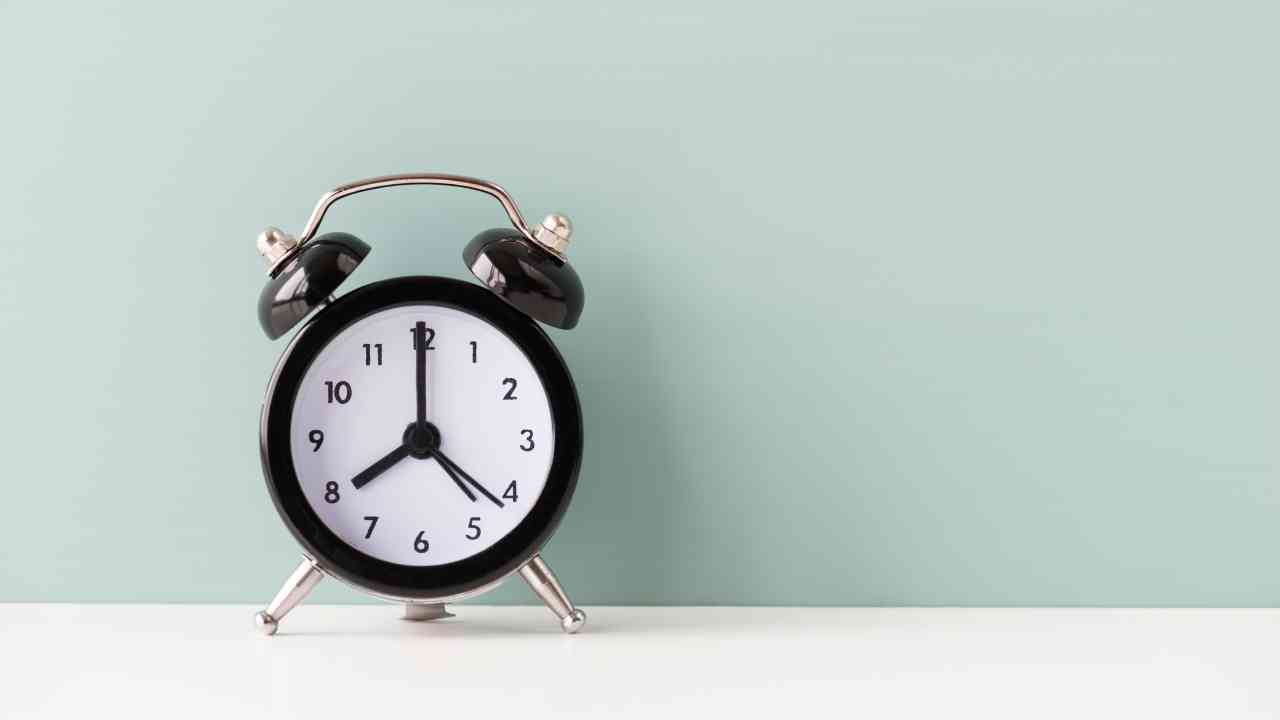
But if you compare the two tracks, track "a" had 29 notes in it - that's the one the neurotypical kids said was longer - and track "b" only had 11 notes in it - that's the one the ADHD kids said was longer.
To me it makes perfect sense. The more complex song was more interesting, so it seemed faster. The one with fewer notes wasn't, so it must have dragged on. Obviously, haha. That's just my opinion though, what do you think? Which song do you think you would have said was longer, the more complex one or the one with fewer, longer notes?
Another little detail from the study is that listening to music in and of itself appeared to improve the inattentive symptoms of all kids involved, ADHD or not. Yay for music!
I was talking to my husband about this and telling him about time blindness and he basically shot me down. I told him that for people with ADHD, boring or repetitive tasks seem to drag on forever. His response was that this was true for everyone. Well, sh*t. I mean, "Time flies when you're having fun" is something that everyone agrees on, right?
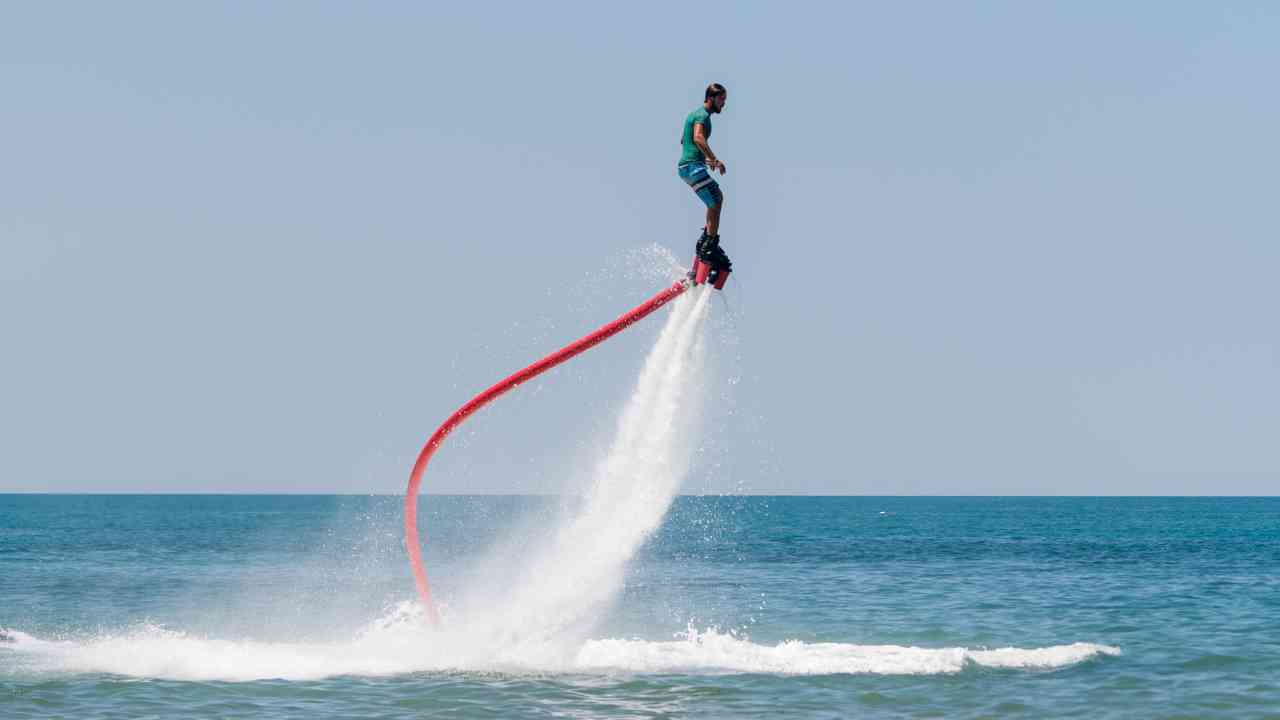
Am I taking something that's true for everyone and making it into an ADHD thing? While the studies I mentioned are limited, they do seem to indicate that we're not always so great at knowing how much time something takes, and so my theory is that if something feels like it's dragging on for a neurotypical person, it feels like an absolute eternity for us folks with ADHD.
It's just a theory though. I haven't come across any studies where people had to fold laundry or anything like that. That's the second time I have mentioned folding laundry in this episode. For me it's really the ultimate in boring tasks. I'd rather clean the kitchen because at least that way I'm close to the food.

A quick side-note. Even though it has been proposed that time blindness could be used as a possible diagnostic characteristic for ADHD, (4) not everyone with ADHD has it, and there are other conditions that are associated with time blindness.
These include depression, anxiety, grief, and alcohol overuse. Also, just good old fashioned sleep deprivation has been linked to time blindness. So just because you tend to get a bit of a surprise from the ol' clock, doesn't necessarily mean you have ADHD. (5)
Some Real-Life Examples of Time Blindness
So all of these studies are interesting, at least to me, I hope to you as well, but what does time blindness look like in real life?
I mentioned a couple of examples in the beginning that I'll elaborate on, and I'll add a few more. These are all sourced from the life of someone I know very well, who is named, me.
Recently I decided that I needed to block off time in my calendar for folding my laundry. Yes, there I go again with the f*cking laundry, I know.
I usually have one large bag of laundry to fold per week. Let's do an experiment, okay? How long do you think it would take to fold said bag of laundry? Bear in mind it's pajamas, workout clothes, socks, and underpants. Got your answer? Okay, cool.
Guess how long I estimated it at? Four hours. I decided to time it a little while ago, and even with me watching a video on YouTube simultaneously, I was able to do it in just over twenty minutes.
Okay Mr. Brain . . . would you care to explain that one to me? Why on earth did I think this 20-minute task would take four hours?
Meanwhile, during the course of preparing this podcast, I decided to bust out a timer and play, "Guess how long that took!" I started the timer, and then began to read a really interesting article written in a very conversational style, and then write my response out in my notes, also in a very free-form, fun, whatever kind of way.

Then. I paused to play my game. I estimated that that quick little amount of reading and writing had taken between three and four minutes.
It had taken 25 minutes.
Well, sh*t fire and save matches. I was way off. Time had not only flown, it had flown the f*cking coop.
A couple other examples from my time blind life . . . see if you can relate . . .
In my last podcast, I mentioned that I was putting "play guitar" on the calendar. I had set aside an hour for this, as I'm trying to make fun more intentional in my life. I'm proud to report I did indeed play the guitar, yay! However, trying to estimate the passage of time while doing this was . . . challenging.
Since this was supposed to be a fun activity for me, you would be logical to assume that I lost all track of time and suddenly looked at the clock and realized I had been playing all night.
The reality was quite different! I will be honest and say that I wasn't really enjoying it because I need to get my guitar repaired .
Long story short it's very very hard to play without a lot of pain, and that's not just because I haven't been practicing that much. So it hurts to play the thing, and on top of that, I decided to start the hour by doing some finger agility exercises instead of just playing a song, you know, like serious musicians do, right?
I played for a while, doing these exercises, feeling a lot of pain, and after a while I thought, "okay, that's probably been a pretty good chunk of time, right?"
Umm, no. Seven minutes. Sheesh.
Some other examples of how this shows up in my life are the following. I will see that I need to do something like empty the dishwasher and my first thought will be, "Oh, I simply can NOT do that right now. That will take hours." Now that I have timed this task and realized that I can usually do it in just a few minutes, it doesn't seem so horrible, and I'm more likely to do it.
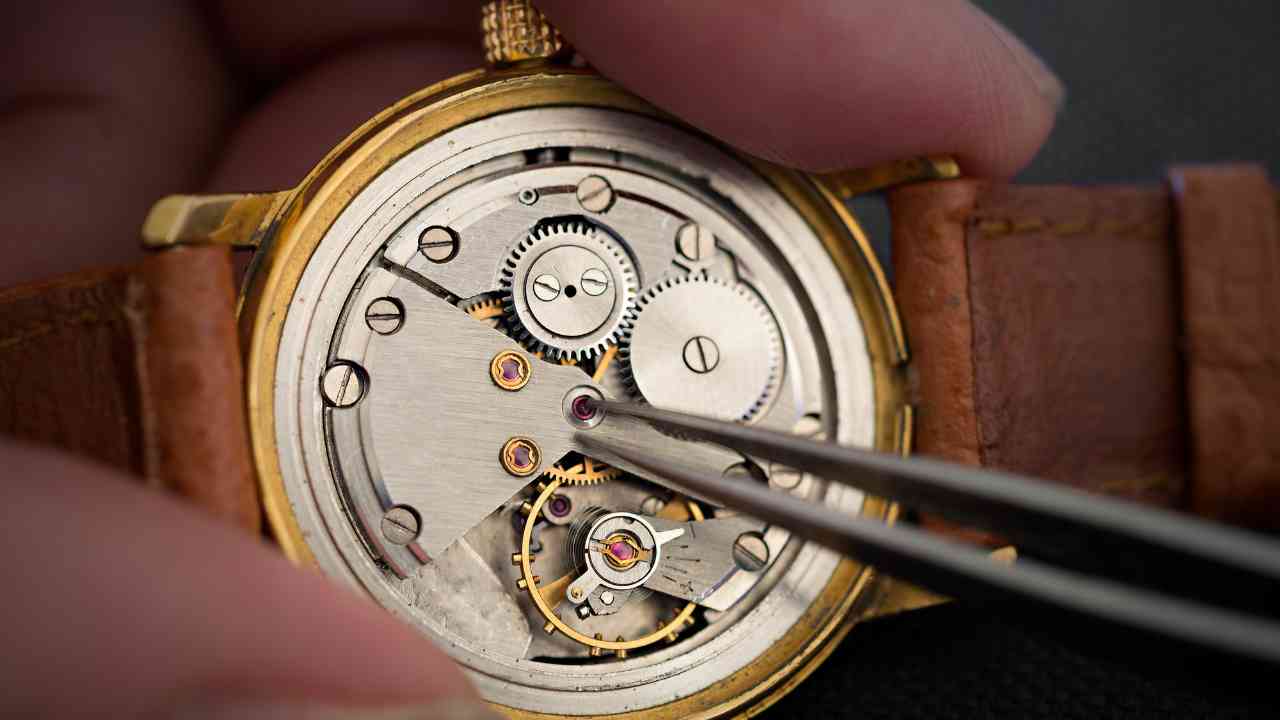
On the other hand, if I had a dollar for every time I'd "quickly checked my phone" and then suddenly realized two hours had evaporated . . . well, I'd have enough to buy you and me both an Olympic-sized swimming pool full of fancy watches.
But enough about me. I would love to hear if you have experienced anything similar. Please leave a comment or send me an email.
Strategies for Getting a Handle on Time
If time blindness is causing problems for you, whether that's being late or showing up crazy early to things out of fear of being late, or being hesitant to start something unpleasant because you feel like it will take ages, to losing track of time doing something interesting that was perhaps not on your to-do list for today . . . it's a good idea to have some strategies to help.
So, here are a few!
Treat Your ADHD - In Whatever Way Works for You
Simply focusing on treating your ADHD will help with this a lot. That could be with a diet change or medication, and also includes just taking good care of yourself. Make sure you're getting the nutrients you need, avoiding excessive stress, and going the f*ck to sleep. No ground-breaking information here, but, hey, sometimes we need to be reminded of it, eh?
Track Time - In Two Ways
One, figure out how long it takes you to do things that you do frequently. If you have routine things that you do every day, such as taking a shower, doing your hair and makeup, making breakfast, whatever it may be, ask yourself if you have a good idea of how long these things take. If not, time them! See if you find anything surprising.
Two, if you feel like you lose track of time while working or doing other things, you can use an app like Time Timer, which is free on mobile, to get a more visual representation of time. Yes, it's called Time Timer, I know. You could also keep track of your time on paper, or in any way that you choose. The idea is to do this in a relaxed way, just to get a general idea. We're not robots that need to be fine-tuned down to the minute, okay? (6)
Give Yourself a Reward
Remember the study that I mentioned before with the kids that got rewards and as a result were able to estimate time better? We can do that too! Think of ways to sneak rewards into your day. The rewards can be anything. I have a cacao tea that I use a lot, for example. I basically only drink it after I've gotten something done, but I also give myself stickers, even though I'm in my 40s I don't care, or even just write "good job" in my step-by-step plan as I go through the day.

Oh, and by the way, I have a photo of adorable baby puppies in my step-by-step plan, so that just looking at my plan as I go through the day is a reward.
If I've been working for an extended period of time, I usually get up and dance for a while, go outside, or go smooch on my husband if he's working from home too.
Listen to Music
Now, remember the teeny tiny study I referenced before that said that music could help with attention? It's worth a shot! Experiment with different types of music while working, doing chores, exercising, cooking, anything where you need a little help understanding the passage of time.
You could also use a playlist in lieu of a timer, so like, if you wanted to organize your house for 30 minutes, you could make a 30-minute playlist and use that to keep track of time.

Change the Way You Think About Time
These days, I try to be seated at my desk by 8:30am on work days. This is always after my morning walk. What I'm about to say might sound very obvious to you, but it really wasn't to me until very recently.
I realized that if I want to be at my desk and working by 8:30, I really need to stop my walk at 8:05 so that I can take the elevator back upstairs, make my second cup of coffee, put my laptop and speaker outside on the balcony table, pick out my music to listen to for the day, and do any other little bits and pieces I need to in order to be ready for the day.
Before, I would always think of the number 8:30 while walking, which meant that I would finish walking at that time and often get to work closer to nine.
Now I think of 8:05am while walking so that I know what time to finish walking. Saying it out loud makes it seem so obvious, but I just plain wasn't doing it.
Set Your Watch Ahead
Some people swear by this. Supposedly it kind of shocks you into action. I did it for years. Seven minutes seemed to be the magic number for me, although it was kind of embarrassing whenever someone asked me what time it was and it took me a bit of time to subtract those seven minutes off to get the real time.
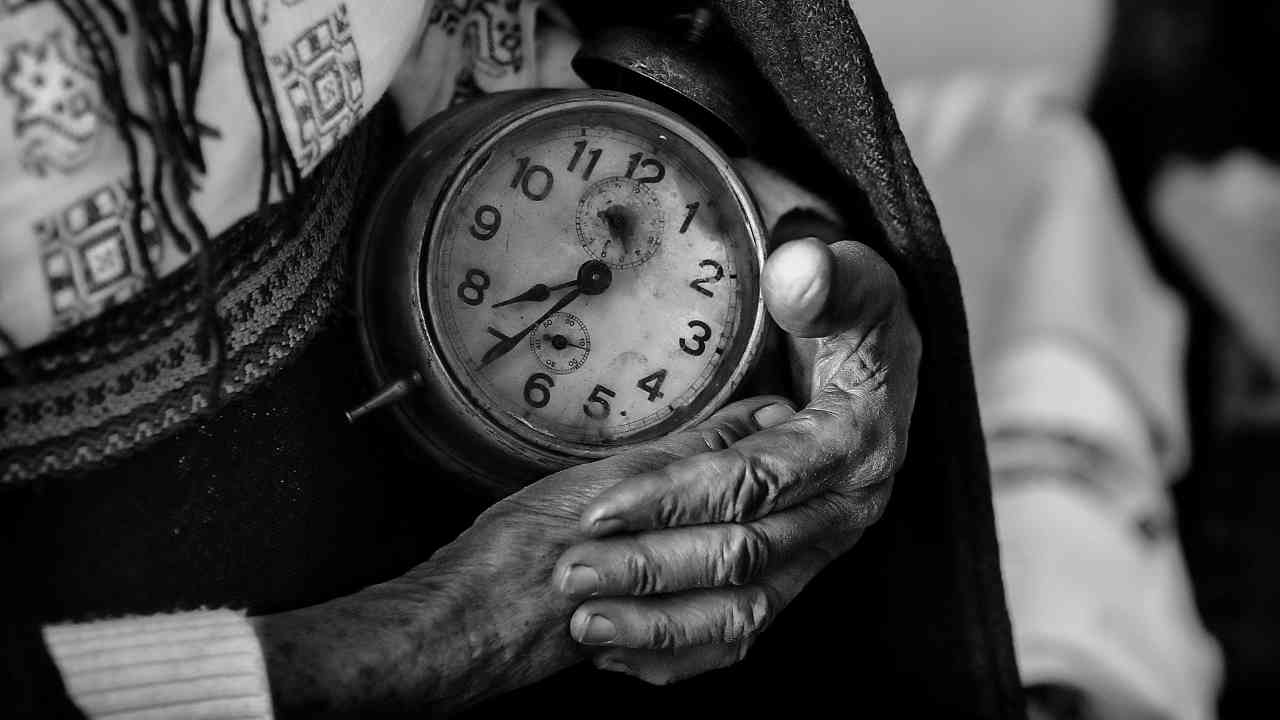
Use a Watch with Hands Instead of a Digital One
Many people also swear by this one, claiming that it's easier to understand time by looking at a watch with actual hour and minute hands on it instead of just numbers. I just plain like watches like this, so I always gravitate towards them anyway, and can't speak to the effectiveness of this personally, but if you have a preference, I'd love to hear about it in the comments section or by email.
Alternatively, if you have a smart watch, you could experiment with different settings to see if any different visual representations of time help.

Make it Interesting
Remember that one study I mentioned where the ADHD kids blew the non-ADHD kids out of the water in terms of estimating time, when there was an emotional component involved?
If you have something that's a bit boring that you have to do, see if you can find a way to make it more interesting. That, in theory, should help you get a better idea of how much time has passed. However, on the other hand . . .
Watch Out for Time Black Holes
You know what I'm talking about. There are some things that we can just get lost in and totally lose track of time when we're doing. Sometimes it's great to get into that flow state and lose yourself in a task or a hobby, but sometimes, there's other sh*t that we gotta do.
Social media is one of my time black holes. I use time blocker apps to kick me off after a certain amount of time, so I can only spend a few minutes a day on sites like Facebook. Otherwise, I just get too sucked in. I also have all notifications disabled.
I also know that I really can't even open YouTube during the day when I'm trying to get work done without falling down a rabbit hole, so I don't even touch it.
Can you identify any time black holes that you have in your life? If so, what solution would work better for you -- not doing those things at all when you're trying to get other things done, or finding a way to limit the time, whether through an app that boots you off or a timer that you can use to keep track of how long you've been falling into said black hole? (7)
Wiggle Room / Buffer Time
Okay, even if you have timed everything down to the last second, life happens. Today, for example, just as I sat down to start work, the exterminator rang the doorbell. I let him in, and then he promptly told me that his colleague had forgotten a piece of equipment and that he needed to come back in a few minutes.
I then quickly ran around the house picking up our shoes so that they wouldn't be filled with poison. Luckily, I had left a little extra time in my schedule for this stuff.
I recommend doing the same. This was hard for me to do for a long time. I struggled with my ADHD for so long and actually feeling totally incapable of sticking to a schedule at all that once I finally got my symptoms more or less under control through dietary therapy, I wanted to schedule every minute. Every single minute must be used! I am Superwoman!!
It was like I was trying to prove something to myself. I overcompensated and began scheduling my day down to the minute. This actually just set me up for failure, as inevitably the phone would ring or the internet would go out or something would take a little longer than planned. Now I try not to overload my day, and ironically I feel like I get more done and am less stressed.

Any Other Ideas?
These are just a few ideas. If you have found something that works for you to help you keep track of time, I would love to hear about it!
Last but Not Least - Be Nice to Yourself
Hey, keeping track of time, estimating how long something will take, remembering how long something took, and all of that good stuff may be hard for you. It's hard for me. I was voted "Late for Life" in my high school yearbook. I've gotten a lot better, and anyways I was also voted "Best Dancer" so, f*ck it. I'm working on it, and just by listening to this, you're working on it too.
Give yourself a break.
Beating yourself up . . . I don't know man. I used to do it to myself all the time. I mean pretty much constantly. It's no way to live.
Screaming at yourself internally because you're late for an appointment is one way to react. You tell me . . . how effective and sustainable of a strategy do you think this is? I tried to ask that in a neutral way but that's hard, because, I think it's a sh*tty strategy.
In conclusion, time can sometimes feel like this nebulous, hard-to-understand concept, but with practice it gets easier to wrangle. Be patient with yourself and eventually you can feel like time is on your side.
If you know anyone who would benefit from this information, please share it with them.
Subscribe to this podcast to hear more information about improving your focus, leveling up your health, and having fun again.
Thanks so much for listening, and have a happy and healthy day.

